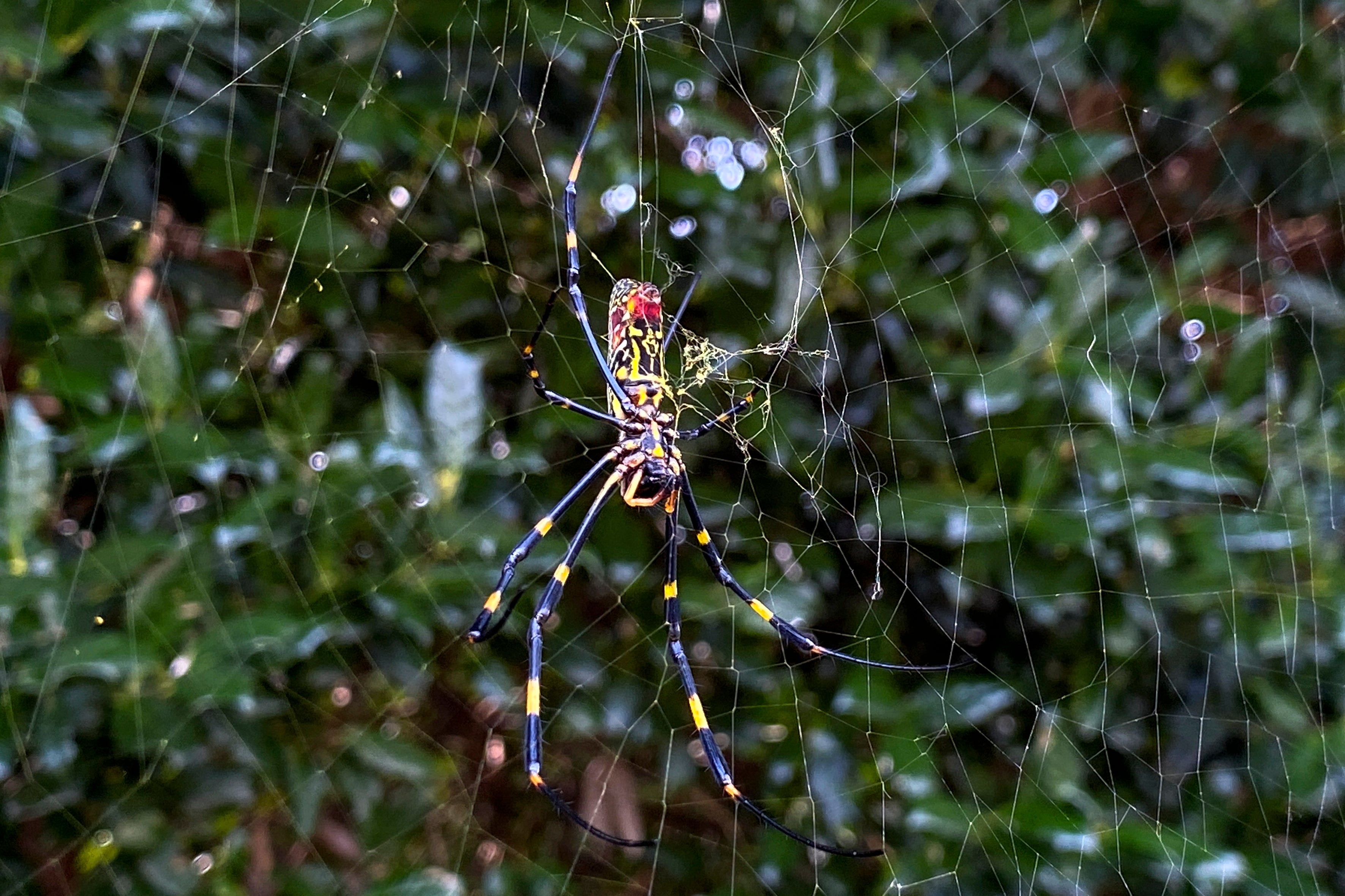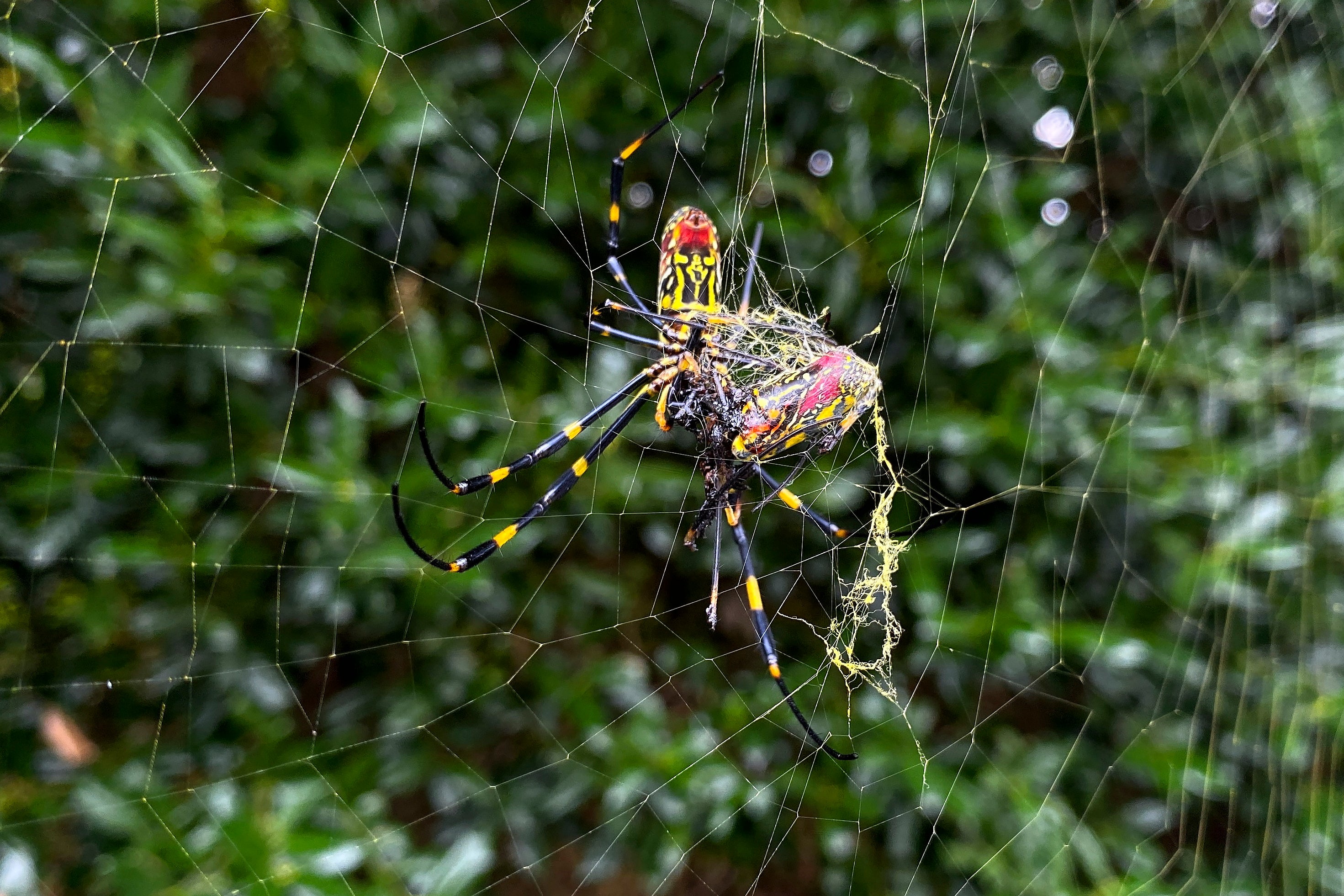Millions of large Asian spiders take hold in Georgia – and scientists aren’t sure why
‘This is wonderful. This is exciting. Spiders are our friends. They are out there catching all the pests we don’t want around our home’

Your support helps us to tell the story
From reproductive rights to climate change to Big Tech, The Independent is on the ground when the story is developing. Whether it's investigating the financials of Elon Musk's pro-Trump PAC or producing our latest documentary, 'The A Word', which shines a light on the American women fighting for reproductive rights, we know how important it is to parse out the facts from the messaging.
At such a critical moment in US history, we need reporters on the ground. Your donation allows us to keep sending journalists to speak to both sides of the story.
The Independent is trusted by Americans across the entire political spectrum. And unlike many other quality news outlets, we choose not to lock Americans out of our reporting and analysis with paywalls. We believe quality journalism should be available to everyone, paid for by those who can afford it.
Your support makes all the difference.Millions of large spiders that are native to East Asia have weaved their golden webs across the US state of Georgia after their numbers exploded this year.
The Joro spider, which is a palm-sized arachnid, is part of the orb weaver group and is common in Japan, China, Korea and Taiwan.
It is not known when the spiders first arrived in the US, but a researcher found one in 2014 about 80 miles north of Atlanta.
“The webs are a real mess,” said Will Hudson, an entomologist at the University of Georgia, told the Associated Press.
“Nobody wants to come out of the door in the morning, walk down the steps and get a face full of spider web.”
Mr Hudson estimated that he’s killed more than 300 of the pests that rendered his porch unusable by blanketing it with webs.
“Last year, there were dozens of spiders, and they began to be something of a nuisance when I was doing yard work,” Mr Hudson said in a September statement. “This year, I have several hundred, and they actually make the place look spooky with all the messy webs — like a scene out of ‘Arachnophobia’.”
The female spiders have bright red, blue and yellow markings and they can measure three inches when fully extended, but scientists say they are unsure why their population has dramatically increased this year.

“We see natural ebbs and flows in the populations of many different species that may be linked to local conditions, particularly slight changes in rainfall,” said Paula Cushing, an arachnologist at the Denver Museum of Nature & Science.
Experts say the spider is not a threat to humans, or pets such as dogs and cats, and won’t bite unless threatened.
Nancy Hinkle, also an entomologist at the University of Georgia, said Joro spiders kill off mosquitos and biting flies, as well as brown marmorated stink bugs, which damage crops.
“This is wonderful. This is exciting. Spiders are our friends. They are out there catching all the pests we don’t want around our home,” Ms Hinkle said.
“Joro spiders present us with excellent opportunities to suppress pests naturally, without chemicals, so I’m trying to convince people that having zillions of large spiders and their webs around is a good thing.”
But not everyone is impressed.
Debbie Gilbert, 67, says she has a zero-tolerance policy for Joro spiders at her home in Norcross, Georgia.
“I don’t advocate killing anything. I live in peace with all the spiders around here and everything else. But Joros just don’t belong here, that’s all.”
Christopher Brown, a biology professor at Georgia Gwinnett College, suspects the spider has thrived in Georgia because its hot and humid climate is similar to that of countries like Japan.
“I don’t think they’re going anywhere,” said Mr Brown.
Researchers say Georgia’s Joro population will likely die off by late November, but they will leave behind egg sacs containing at least 400 babies that will hatch in the spring.
The spiders are expected to spread to other states with similar climates after having established their foundation in the Peach State.
The Associated Press contributed to this story
Join our commenting forum
Join thought-provoking conversations, follow other Independent readers and see their replies
Comments